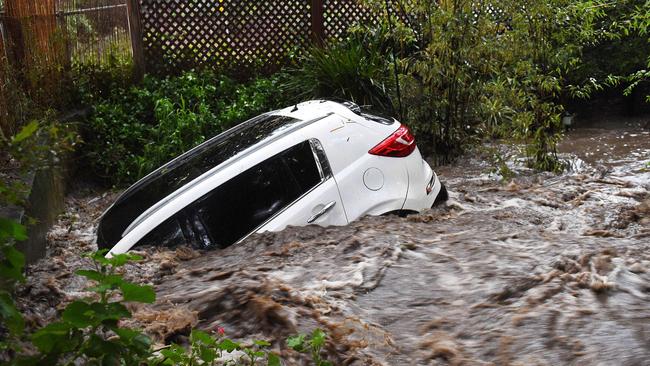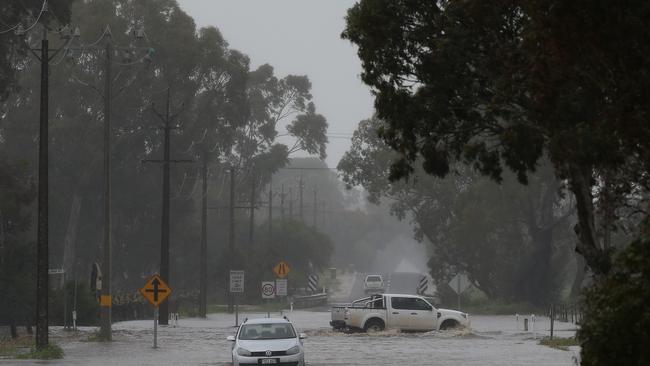September storm relief payouts for flood damage cost $7 million
SEPTEMBER’S wild weather has come at a considerable cost, prompting affected homeowners to claim almost $7 million in government relief grants.
SA News
Don't miss out on the headlines from SA News. Followed categories will be added to My News.
- September storms clean-up to cost at least $14m
- Second blackout report reveals why wind farms failed
- Analysis: Why weren’t we better prepared?
SEPTEMBER’S wild weather has come at a considerable cost, prompting affected homeowners to claim almost $7 million in government relief grants.
More than 12,000 households, left for days without electricity, received grants totalling $6.53 million.
That is on top of $260,000 handed out in the immediate wake of the flood and storm damage.
The total September payout is more than eight times the emergency assistance payments granted following last year’s Pinery bushfire.
Premier Jay Weatherill was swift to announce the grants of up to $700 for those who lost power following the spring storms that contributed to the statewide blackout on September 28.
It left a number of regional cities without power for more than 48 hours.

Government figures show 12,262 households were granted an average of $533 each, made available to residences left without electricity for a continuous period of more than 20 hours.
The grants were designed to provide immediate relief to householders left with fridges and freezers full of rotten food, while many businesses relied on insurance payouts to cover loss of trade and spoiled produce.
Almost 500 households received flood clean-up grants, worth $107,580, in the wake of the September 14 flooding.
Another $153,360 was paid to 290 households after storms lashed the state two weeks later.
Communities and Social Inclusion Minister Zoe Bettison said the grants were issued following strict eligibility criteria.
“The need to support people in their hour of need is always balanced with the imperative to ensure taxpayers’ money is being spent prudently,” she said.
SA Council of Social Service chief executive Ross Womersley said he hadn’t heard of applications being denied but it was difficult to determine whether all eligible people had received government assistance.
“It’s a process to make sure people know what they’re entitled to and then encouraging them to go ahead and access it,” he said.
Mr Weatherill and Prime Minister Malcolm Turnbull met in Canberra on Wednesday to discuss issues including the statewide blackout and energy market reform.
Mr Weatherill said while talks were “cordial and constructive”, no agreements were reached.
He raised concerns that the national market was “out of step” with carbon emissions reduction targets.
“There’s been a lot of discussion about the nation’s energy supply after our blackout. Our very firm position is we believe in a renewable energy future not only for SA but the nation,” Mr Weatherill said.
SA’s position on renewables prompted One Nation Senator Malcolm Roberts — a climate change denier — to liken the government to a fundamentalist, murderous Islamic sect for “deliberately detonating” a coal-fired power plant.
“The Taliban is at work in the government of SA,” he said in a speech to the Senate.



